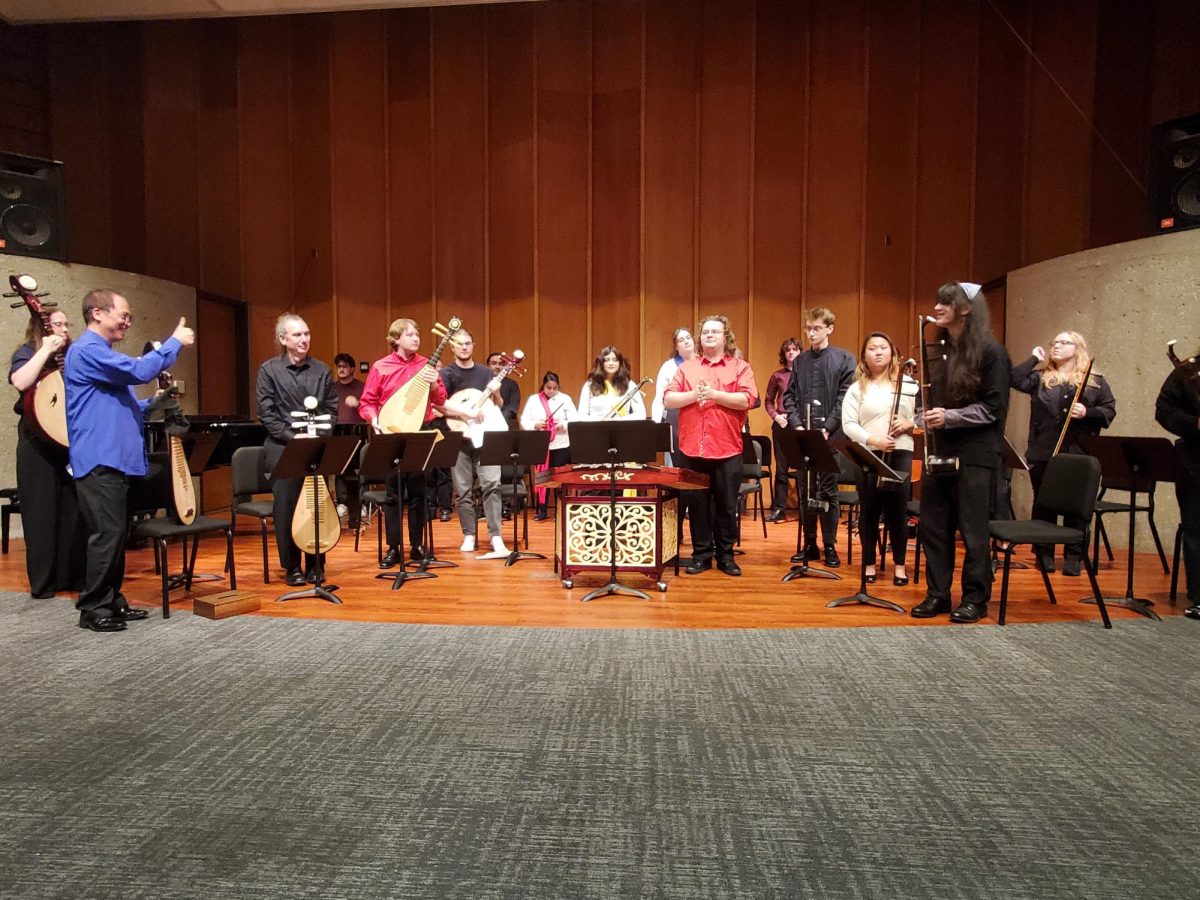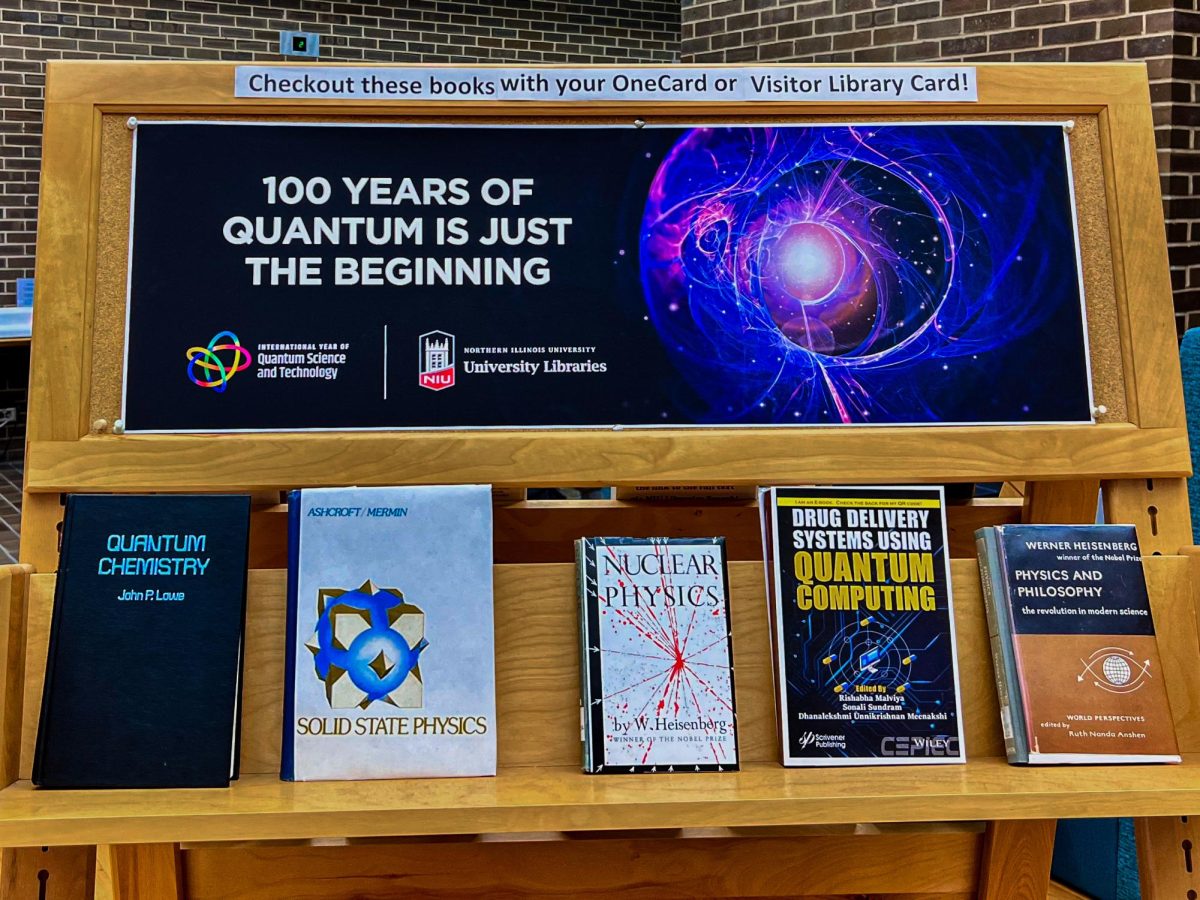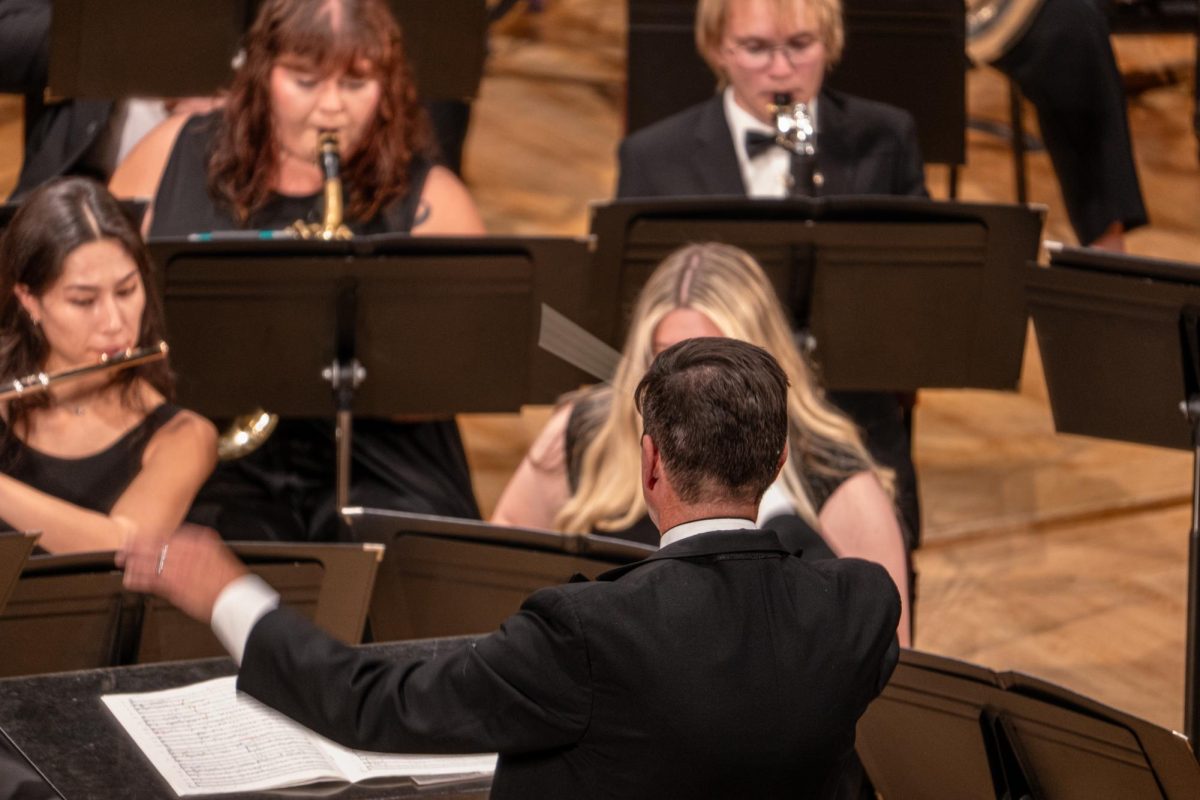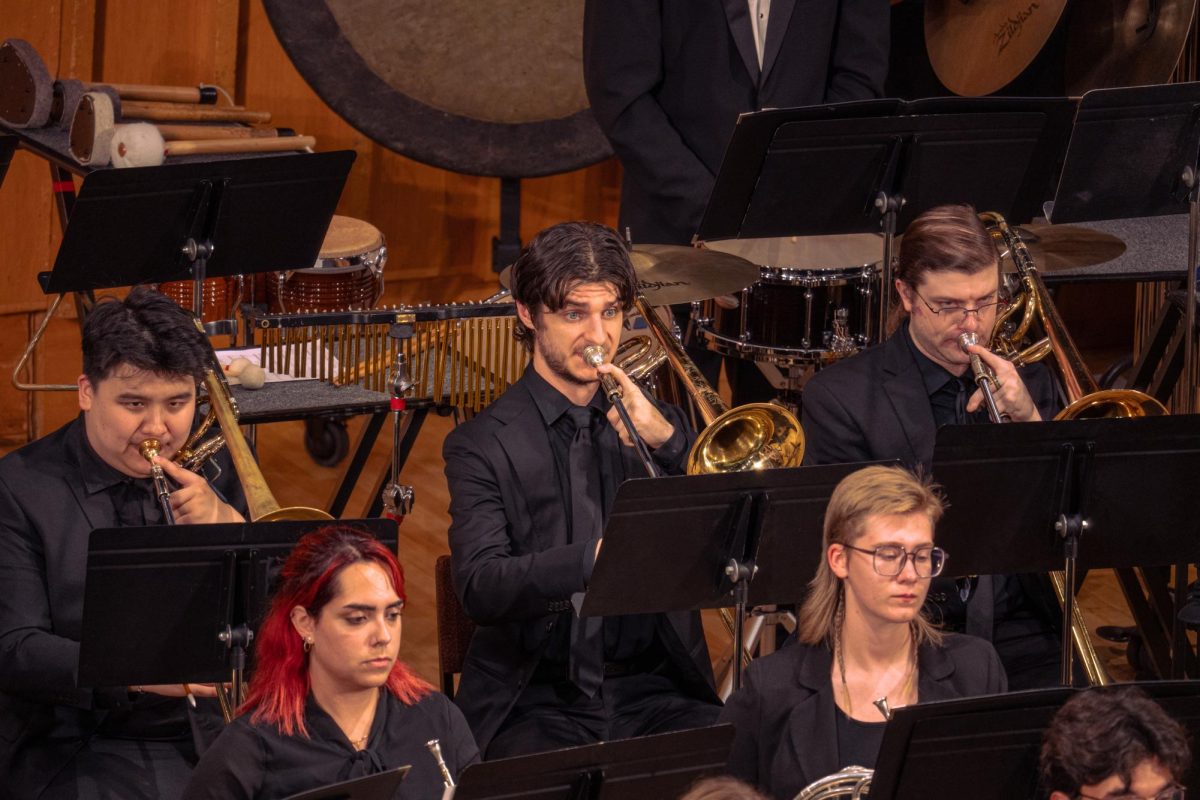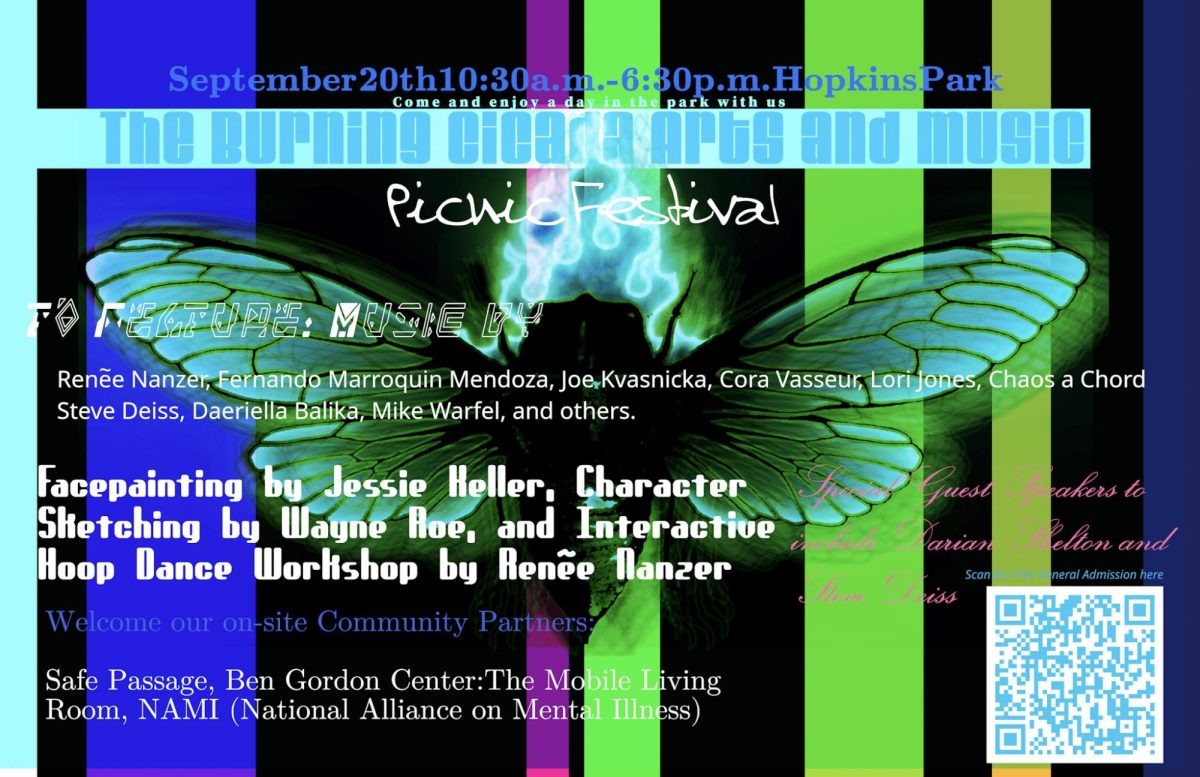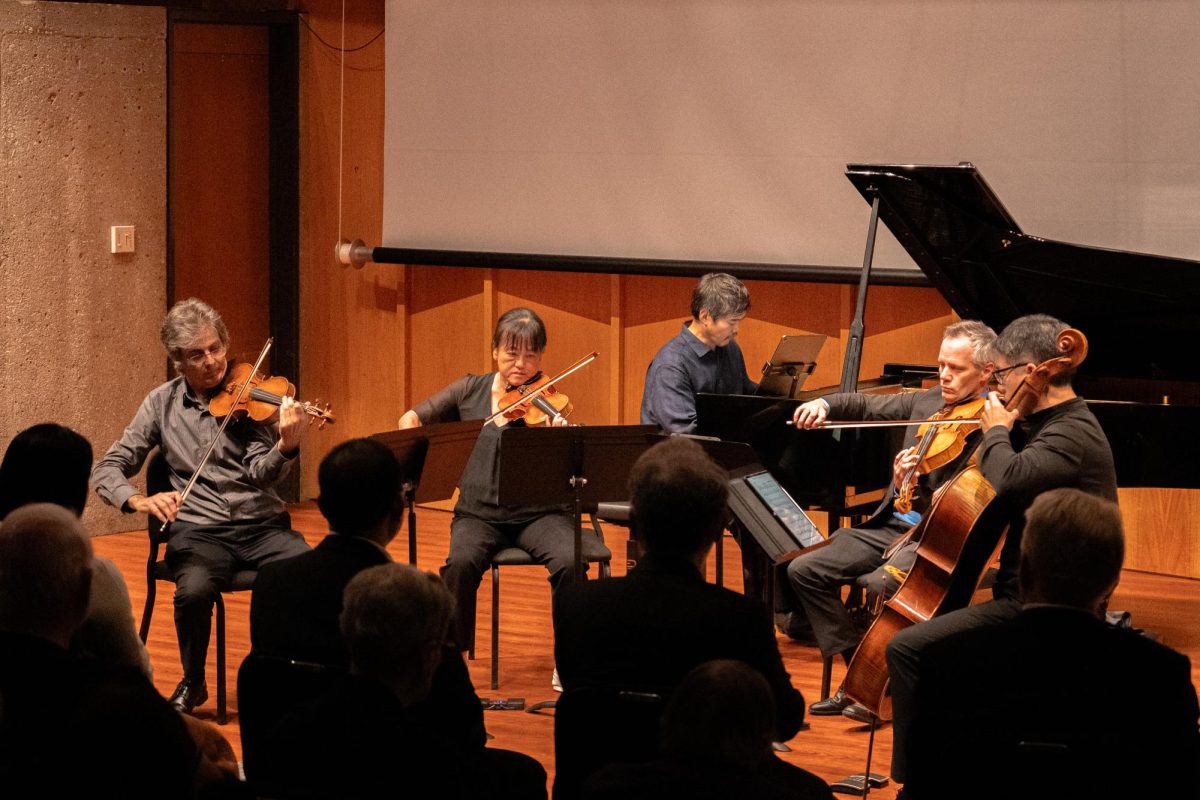The members of the World Music Program delivered an astounding display of East Asian music Wednesday.
At 5 p.m. in the Recital Hall of the Music Building, members of the World Music Program and guest performers played various pieces of East Asian music in a chamber ensemble concert.
The concert served as the kickoff to the World Music Festival, a series of three performances taking place on Nov. 18, Nov. 19 and Nov. 22, as well as the debut of the Japanese Ensemble.
The concert featured performances by three World Music ensembles: the Korean Drumming Ensemble, the Chinese Music Ensemble and the newly formed Japanese Music Ensemble.
Guest performers Hong Da Chin, playing the Chinese bamboo flute, William Goldenberg, on the piano, Ellie Olin, with vocals, and Paul Wright, performing Tai Chi, joined the three ensembles in delivering a night of astounding East Asian music.
The groups performed 14 different melodies during the concert consisting of Japanese and Chinese music and folk tunes.
The songs performed were “The Fragrance Osmanthus in August,” “Spring in Xiang River,” “Yang’s Tai Chi,” “Merrily Xinjiang,” “Colorful Clouds Chasing the Moon,” “Sakura,” “Kazoe uta,” “Kojo no Tsuki,” “Hana Kage,” “Merry-go-round of life,” “The Wind that Shakes the Barley,” “Samulnori,” “Arirang Medley Korean Folk Song” and “Peach Blossom Ferry Crossing.”
The first song, “The Fragrance Osmanthus in August,” is a merry tune and the kind of song one might hear during a festival or a parade. It starts with a single string player and has others join in to reach a satisfying conclusion as one.
The next song, “Spring in Xiang River,” performed by Hong Da Chin on the dizi and William Goldenberg on the piano, radiated a soft and calming aura. Midway through, the pacing of the song shifted to a speedy tempo and was quick on its feet.
“Yang’s Tai Chi,” performed by Wei Yang on the pipa and Paul Wright performing the movements of Tai Chi, was slower and complemented Wright’s movements which were fluid and in constant motion.
“Merrily Xinjiang” was performed by Ethan Cowburn on the yangqin and Mikey Speziale on the frame drum and was rapid and enticing.
“Colorful Clouds Chasing the Moon,” performed by the Chinese Music Ensemble, was a calming collection of flutes and strings that came together to create a peaceful tune that ended in harmony.
“Sakura,” “Kazoe uta” and “Kojo no tsuki” are three Japanese folk songs that were performed in succession by the Japanese Ensemble and chosen by music students. Each tune was very short, around two minutes, and evoked calming auras.
“Hana Kage,” performed by the Japanese Ensemble, was traditional Japanese music featuring a combination of strings and flutes with the strings serving as a base and having a soft ending.
The last piece performed by the Japanese Ensemble, “Merry-go-round of Life,” sounded majestic with the inclusion of the bass and widely different compared to the other songs played before it.
“The Wind that Shakes the Barley” was performed by the plucked string section of the Chinese Music Ensemble and Gabriel Roethle on the violin and featured a quick and peppy tempo that ended as rapidly as it began.
“Samulnori” was performed by the Korean Drumming Ensemble and was deafening. However, the increased volume didn’t make the song lose its musical rhythm. In fact, the audience was even clapping along with the beat and throwing compliments to the performers over their playing.
Suwan Choi, instructor for the Korean Drumming Ensemble, welcomed members of the audience to join their practice sessions and promoted being together as a community.
“One of the biggest themes of Korean drumming tradition is being together because it developed as a tool to celebrate events,” Choi said. “You can always come to our class. It’s on Thursday (4 p.m. to 6 p.m. in the Music Building) and it’s open for everyone.”
The “Arirang Medley” is a Korean folk song performed by the Chinese Musical Ensemble and Suwan Choi on the Janggu. It featured a collection of flutes and strings emitting a solid and serene tune.
The final song of the concert, “Peach Blossom Ferry Crossing,” was performed by the Chinese Musical Ensemble and sported a whimsical tone complemented by the constant shift between the flutes and strings.
Jui-Ching Wang, a professor of the NIU School of Music and coordinator of the World Music Program, spoke to the audience after the concert thanking them for their support with their fundraiser last month where they raised $10,000 in donations.
“We are actually going to celebrate the 50th anniversary of the World Music Program next year,” Wang said. “I am very very grateful to whoever is out there watching us online and who is always very supportive of us.”
The concert served as an outstanding way to kick off the World Music Festival and show off the talent and dedication of the members of the program.


